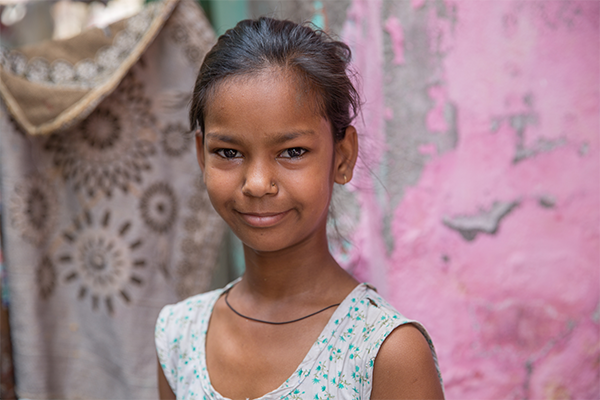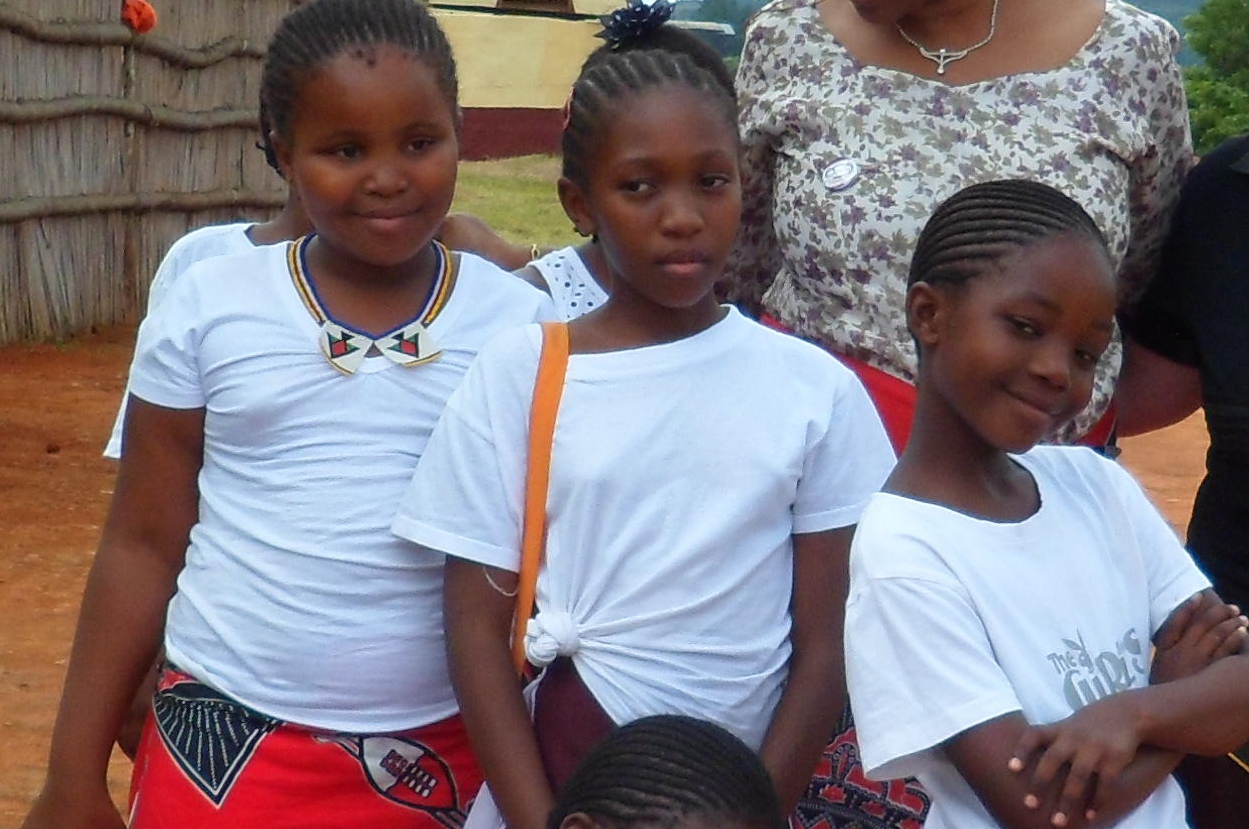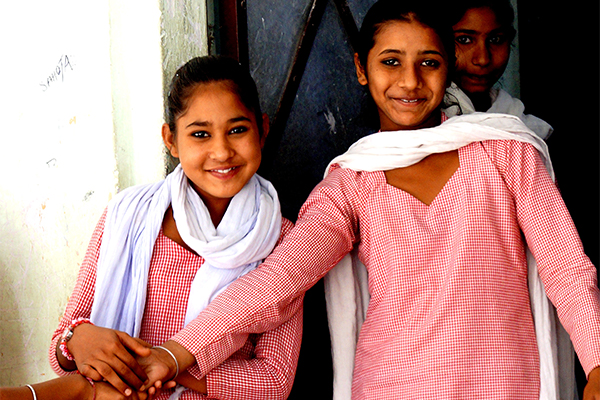AYSRH Toolkit
Advocating for Youth-Friendly Cities- Home
- Help and Support
- Close
- Toolkits
- Global Toolkit
- AYSRH Toolkit
- Hub Toolkits
- Core High-Impact Practices
- Gender Essentials Mini Course
- Close
- Resource Collection
- Community of Practice
- Coaching
- Log In/Register
- My Profile
- English
Community Gatekeepers
What is it?
 Gatekeepers are people who have influence or control over youth access to healthcare: for example, husbands, community and religious leaders, parents, mothers-in-law, and male relatives. Community gatekeepers can strongly influence the value systems of those around them. The support of these gatekeepers can be crucial for youth—particularly young women—to understand their reproductive health and rights, and increase demand for contraceptives and other sexual and reproductive health (SRH) services. Advocacy efforts aimed at gatekeepers can enhance community support in promoting a safe and supportive environment for adolescent and youth sexual and reproductive health (AYSRH), which in turn allows for effective demand generation activities that not only provide youth with AYSRH information but also link them to contraceptive services.
Gatekeepers are people who have influence or control over youth access to healthcare: for example, husbands, community and religious leaders, parents, mothers-in-law, and male relatives. Community gatekeepers can strongly influence the value systems of those around them. The support of these gatekeepers can be crucial for youth—particularly young women—to understand their reproductive health and rights, and increase demand for contraceptives and other sexual and reproductive health (SRH) services. Advocacy efforts aimed at gatekeepers can enhance community support in promoting a safe and supportive environment for adolescent and youth sexual and reproductive health (AYSRH), which in turn allows for effective demand generation activities that not only provide youth with AYSRH information but also link them to contraceptive services.
What Are the Benefits?
- Supportive community gatekeepers enable better AYSRH: When community gatekeepers better understand SRH issues facing youth, they can help address misinformation around contraception, reduce stigma and shame around contraceptive use among adolescents and young people, and address ambiguous policies that result in service providers acting on personal bias.
- Acceptance of youth sexuality results in greater access to preventive health services: Community acceptance of youth’s SRH needs and right to access services allows them to be more proactive in protecting their own health.
How to Implement?
Step 1: Identify key community influencers / gatekeepers
In the case of Nigeria, TCI has used a net-mapping exercise. The net-map exercise is a social network analysis that uses participatory interviews to help people visualize, discuss, and improve programs or interventions by focusing on different actors who can influence the outcome of these interventions. Net-mapping is referred to as “Influence Mapping” because it helps people understand the complexities of a situation, then supports them to identify formal and informal networks, bottlenecks, and reasons for the success or failure of a program like AYSRH.
In other TCI-supported cities, focus group discussions with youth have been conducted.
Although each city is unique, TCI identified the following frequently reported gatekeepers across cities: mothers-in-law, teachers, religious leaders, and parents, as well as other youth.
Step 2: Identify the best platforms for engaging them
TCI promotes a number of proven approaches that promotes a safe and supportive environment for youth:
| At the governance level | At the community level |
|
Establishing and strengthening the following platforms and ensuring youth representation: ● Program Implementation Teams ● Quality Improvement Teams |
● Facilitating community and intergenerational dialogues ● Strengthening women’s groups (Mahila Arogya Samitis) ● Developing messages for mothers-in-law, young men as partners and religious leaders ● Identifying and training family planning or AYSRH champions in SMART advocacy to extend the reach of their messages to their stakeholders
|
As a result of the net-map findings in Niger State, TCI made advocacy visits to principals in nine secondary schools in three local government areas (Bida, Suleja and Lapai) to sensitize them to the importance of life planning for adolescents and youth. TCI also identifies youth religious leaders and advocates for them to become LPAY champions, providing them with training using the following tools developed by the Nigeria Urban Reproductive Health Initiative:
- Christian Perspective on Reproductive Health & Family Planning in Nigeria
- Christian Sermon Note on Childbirth Spacing/Family Planning (CBS/FP)
- Islamic Perspective on Reproductive Health & Childbirth Spacing in Nigeria
- The Islamic Sermon Notes on Childbirth Spacing in Nigeria
TCI in Francophone West Africa also engages religious leaders to promote AYSRH among their congregants through their sermons and counseling of their members, as well as strengthens the capacity of community relays (similar to community health workers) to counsel clients on AYSRH issues during their household visits.
In East Africa, teachers have been identified as a key source of influence. Unknowingly, they may be a barrier to youth’s uptake of a contraceptive method due to their own misconceptions. See this story about a TCI youth champion in Kenya improving her school environment by helping to sensitize teachers with accurate information about contraceptives.
In India, family decision-makers, such as mothers-in-law and husbands, are often engaged during demand generation activities conducted by urban accredited social health activists (ASHAs).
|
Story from India: Influencing the Influencer  Pooja with her mother-in-law Pooran Devi For the past two years, Laxmi has been working as an accredited social health activist (ASHA) in the Ramnagar area of Firozabad. Laxmi organizes community meetings for health awareness and promoting family planning (FP) services, and during one such meeting she met Pooja, a young mother with an infant. Pooja’shusband was a daily wage earner and due to financial constraints, the couple did not want to have another child for another three years. After the group meeting, Laxmi visited Pooja’s home where she sensed that all decisions in the household, including what to eat and what to wear, were made by her mother-in-law — Pooran Devi. Pooran Devi was against the use of contraceptive methods, and she prevented Pooja from adopting any method immediately after the birth of her son. Read more about how Laxmi built a relationship with Pooja’s mother-in-law to help Pooja access family planning services. |
Step 3: Plan a gatekeeper approach
- Adapt to the local environment: Even the most successful programmatic approaches will need to be adapted for context, including local customs, traditions, power dynamics, gender norms, and available platforms.
- Create an enabling environment: Activities should aim to change the community environment in which youth live, promoting protective factors and removing barriers to beneficial behaviors.
- Encourage meaningful youth involvement and engagement: In all contexts and environments, when youth are actively engaged throughout the entire process—from design, to implementation, to monitoring and evaluation—they are more likely to participate, share, and feel ownership over a project or initiative.
What Is the Evidence?
- There is evidence that in order to increase young people’s access to preventive health care, including contraceptive services, community support and acceptance activities are as necessary as supply-side activities like training service providers. Interventions directed at influencing the SRH behaviors of adolescents are significantly enhanced where there are complementary interventions for parents, providers, religious leaders, and other influential adults who can foster a supportive environment in homes, health facilities, schools, and places of worship.
- Community Pathways to Improved Adolescent Sexual and Reproductive Health documents a quasi-experimental study conducted in Nepal. The study tested the hypothesis that involving communities (particularly youth and adult gatekeepers) would result in better health outcomes. The findings clearly demonstrated that the intervention with significant community participation yielded more positive results than the control sites; the most apparent results were changes in community norms and values that influence AYSRH.
- Religious leaders have proven to be integral to disseminating information as uncovered in TCI’s predecessor project, BMGF-funded Urban Reproductive Health Initiative (URHI):
- NURHI facilitated the establishment of an interfaith platform for Muslims and Christians to interact and understand the importance of family planning based on their faiths, thereby supporting FP uptake at the community level.
- Nairobi Tupange worked with Christian leaders who became FP champions in their communities, informing their congregations of upcoming activities and making their churches available as outreach sites.
- The four URHIs developed materials based on the Quran, including support for family planning in general and birth spacing specifically.
- Community support has been found to improve condom usage in slum areas of Ibadan municipality in Nigeria; knowledge and access were not issues, while young people identified social support as crucial to their usage.
TCI APP USERS PLEASE NOTE
You will only receive CERTIFICATES by email – when earning a score above 80% – and will not be able to view or print a certificate PDF from the TCI app.
Test Your Knowledge
Earn a Certificate
Quiz Summary
0 of 6 Questions completed
Questions:
Information
You have already completed the quiz before. Hence you can not start it again.
Quiz is loading…
You must sign in or sign up to start the quiz.
You must first complete the following:
Results
Results
0 of 6 Questions answered correctly
Your time:
Time has elapsed
You have reached 0 of 0 point(s), (0)
Earned Point(s): 0 of 0, (0)
0 Essay(s) Pending (Possible Point(s): 0)
Categories
- Not categorized 0%
- 1
- 2
- 3
- 4
- 5
- 6
- Current
- Review
- Answered
- Correct
- Incorrect
-
Question 1 of 6
1. Question
Gatekeepers who can have control over youth access to healthcare include:
CorrectIncorrect -
Question 2 of 6
2. Question
Community gatekeepers can help to reduce the stigma and shame around contraceptive use in adolescents and young people.
CorrectIncorrect -
Question 3 of 6
3. Question
Interventions directed at influencing the SRH behaviors of adolescents are significantly enhanced where there are complementary interventions for parents, providers, religious leaders, and other influential adults who can foster a supportive environment in homes, health facilities, schools, and places of worship.
CorrectIncorrect -
Question 4 of 6
4. Question
People will change their beliefs quickly and do not need time to process new information.
CorrectIncorrect -
Question 5 of 6
5. Question
How useful did you find the information and/or tools presented on this page? Please write your response in the box below using one of the following phrases: Very useful, Useful, Somewhat useful, Not useful.
Feel free to comment on why you made that choice.
-
This response will be awarded full points automatically, but it can be reviewed and adjusted after submission.
Grading can be reviewed and adjusted.Grading can be reviewed and adjusted. -
-
Question 6 of 6
6. Question
How do you intend to use the information reviewed and/or tools that you accessed?
-
This response will be awarded full points automatically, but it can be reviewed and adjusted after submission.
Grading can be reviewed and adjusted.Grading can be reviewed and adjusted. -
Approaches: Advocating for Youth-Friendly Cities
Helpful Tips
- Expand the definition of community to include females who influence young women’s healthcare, including mothers-in-law, co-wives, and close friends.
- Inform/educate parents, teachers, faith leaders, and other community members on issues related to AYSRH, and train them to disseminate information regarding sexuality and SRH within their homes, communities, and congregations.
- Facilitate community dialogues to provide community members with a structured discussion guide, including a specific topic for consideration. Provide a space for open, safe discussion, then allow time for members to absorb and process new information before reconvening.
Challenges
- Changing long-held beliefs is not easy or quick, so it’s important to leave ample time before follow-up.
Resources:
- Engaging Men and Boys in Gender Equality and Health: A Global Toolkit for Action, Promundo, MenEngage Alliance and UNFPA
- Advancing Male Engagement in Family Planning + Reproductive Health: An Advocacy Tool
Similar Interventions:
- East Africa’s Community dialogues
- Nigeria’s Intergenerational dialogues
- India’s Strengthening women’s groups (Mahila Arogya Samitis)
References
See a listing of all AYSRH references.






